A dramatic soprano is a type of operatic soprano with a powerful, rich, emotive voice that can sing over, or cut through, a full orchestra. Thicker vocal folds in dramatic voices usually (but not always) mean less agility than lighter voices but a sustained, fuller sound.[ citation needed ] Usually this voice has a lower tessitura than other sopranos, and a darker timbre. They are often used for heroic, often long-suffering, tragic women of opera. Dramatic sopranos have a range from approximately low A (A3) to "high C" (C6). [1] Some dramatic sopranos, known as Wagnerian sopranos or High dramatic sopranos (high in this case referring to the maturity of the voice, rather than the tessitura or range), have an exceptionally big voice that can assert itself over a large orchestra (of more than 80 or even 100 players). These voices are substantial, often denser in tone, extremely powerful and, ideally, evenly balanced throughout the vocal registers. Wagnerian sopranos usually play mythic heroines. Successful Wagnerian sopranos are rare and often Wagnerian roles are performed by Italianate dramatic sopranos. [1]
The following dramatic roles are for dramatic sopranos: [2]
The following roles are for suitable for High dramatic/Wagnerian sopranos: [2]
A mezzo-soprano (Italian:[ˌmɛddzosoˈpraːno], lit. 'half soprano'), or mezzo ( MET-soh), is a type of classical female singing voice whose vocal range lies between the soprano and the contralto voice types. The mezzo-soprano's vocal range usually extends from the A below middle C to the A two octaves above (i.e. A3–A5 in scientific pitch notation, where middle C = C4; 220–880 Hz). In the lower and upper extremes, some mezzo-sopranos may extend down to the F below middle C (F3, 175 Hz) and as high as "high C" (C6, 1047 Hz). The mezzo-soprano voice type is generally divided into the coloratura, lyric, and dramatic.
The German Fach system is a method of classifying singers, primarily opera singers, according to the range, weight, and color of their voices. It is used worldwide, but primarily in Europe, especially in German-speaking countries and by repertory opera houses.

Leopoldine Rysanek was an Austrian dramatic soprano.

Anja Silja Regina Langwagen is a German soprano singer.

Cheryl Studer is an American dramatic soprano who has sung at many of the world's foremost opera houses. Studer has performed more than eighty roles ranging from the dramatic repertoire to roles more commonly associated with lyric sopranos and coloratura sopranos, and, in her late stage, mezzo-sopranos. She is particularly known for her interpretations of the works of Richard Strauss and Richard Wagner.

Dame Gwyneth Jones is a Welsh dramatic soprano, widely regarded as one of the greatest Wagnerian sopranos in the second half of the 20th century.
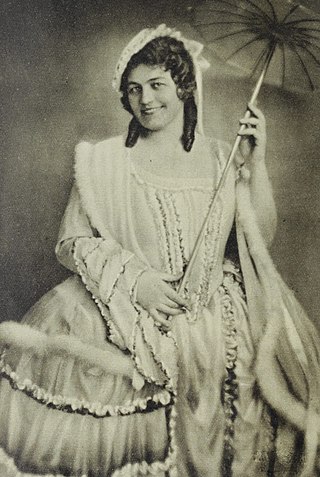
Viorica Ursuleac was a Romanian operatic dramatic soprano.

Ingrid Kristine Bjoner Pierpoint was a Norwegian soprano who had an international opera career between 1956 and 1990. She was particularly celebrated for her portrayal of Wagnerian heroines and for her performances in operas by Richard Strauss. In addition to performing in operas, Bjoner was an active concert soloist and recital performer throughout her career.
Alessandra Marc, born Judith Borden is an American dramatic soprano who has appeared at many of the world's opera houses and orchestras. Marc is particularly known for her interpretations of the works of Richard Strauss, Richard Wagner, Giuseppe Verdi, music of the Second Viennese School, and the title role in Puccini's Turandot.
Janice Baird is an American dramatic soprano, best known for her interpretation of Wagner and Strauss. Baird was born in New York City.
Éva Marton is a Hungarian dramatic soprano, particularly known for her operatic portrayals of Puccini's Turandot and Tosca, and Wagnerian roles.
A spinto soprano is a type of operatic soprano voice that has the limpidity and easy high notes of a lyric soprano, yet can be "pushed" on to achieve dramatic climaxes without strain. This type of voice may also possess a somewhat darker timbre than the average lyric.
Eva Johansson is a Danish operatic soprano.
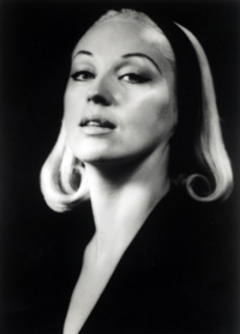
Klara Barlow was an American opera singer who had an active international career from the mid-1960s to the 1990s. A dramatic soprano, Barlow particularly excelled in portraying Strauss and Wagnerian heroines. The 5-foot-11-inch-tall "platinum-blonde beauty" was ideal for playing the "Wagnerian blondes": roles like Elsa, Eva, Sieglinde, and Elisabeth. Although she worked most often in the German repertoire, Barlow also sang roles from the Italian, French, and Czech repertories. While her performance credits included leading roles at most of the world's major opera houses, she never achieved a high level of international fame. She did not participate in any commercial audio recordings, although her voice is preserved on a few television and radio broadcasts made in Germany, Canada, and the United States.
Jennifer Wilson is an American soprano known especially for her Wagnerian opera roles. She is the daughter of Newton Wilson and Katherine Still. The daughter, granddaughter and niece of professional singers, instrumentalists and music educators, Wilson grew up steeped in music from opera and oratorio to rock 'n' roll and bluegrass. She began tap dance lessons at age 3, ballet at 8, piano at 10, and solo classical singing at 12. Wilson attended Cornell University for several years, eventually departing on a leave of absence which she filled with advanced training in acting, languages, and vocal studies with former Metropolitan Opera coloratura soprano Marilyn Cotlow. During this time, Wilson supported herself as a news bureau assistant and wire editor for Radio Free Europe/Radio Liberty. The consolidation of US international broadcast services in 1995 caused Wilson to lose her position with RFE/RL, forcing her to find other employment. At this point she took up singing full-time, though her breakthrough to the elusive ranks of international soloist was still several years away.
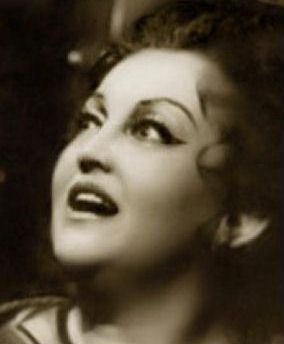
Ursula Schröder-Feinen was a German operatic dramatic soprano who performed internationally, including at the Metropolitan Opera and the Bayreuth Festival.
Evelyn Herlitzius is a German opera singer, a dramatic soprano. She is known for performing major roles in works by Richard Wagner and Richard Strauss, such as Brünnhilde, Isolde and Elektra, at the Semperoper, the Bayreuth Festival and leading European opera houses.
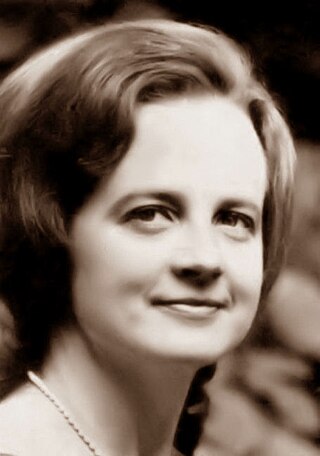
Berit Maria Lindholm was a Swedish dramatic soprano. She was first based at the Royal Swedish Opera and made an international career, performing at the Royal Opera House in London, the Bayreuth Festival and the Vienna State Opera, among many others. She is regarded as one of the greatest Wagner singers of her generation.
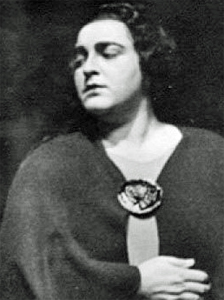
Erna Schlüter was a German operatic dramatic soprano and voice teacher. Beginning as a contralto at the Oldenburgisches Staatstheater in 1922, she moved to the Mannheim National Theatre in 1925 where her voice developed to dramatic soprano, to the Stadttheater Düsseldorf in 1930 where she appeared in 1933 in the world premiere of Winfried Zillig's Der Rossknecht and was awarded the title Kammersängerin. Her last station, from 1940, was the Hamburg State Opera.
Linda Watson is an American dramatic soprano and academic voice teacher. She made her career based in Germany where she studied and began as a mezzo-soprano at the Theater Aachen. She has performed worldwide, including at the Vienna State Opera, La Scala, the Metropolitan Opera and the Bayreuth Festival. She focused on dramatic roles by Wagner, including Brünnhilde and Isolde, and Strauss, including Ariadne and the Dyer's Wife. She was awarded the title Kammersängerin in Germany in 2004 and in Austria in 2020.
Notes
Sources